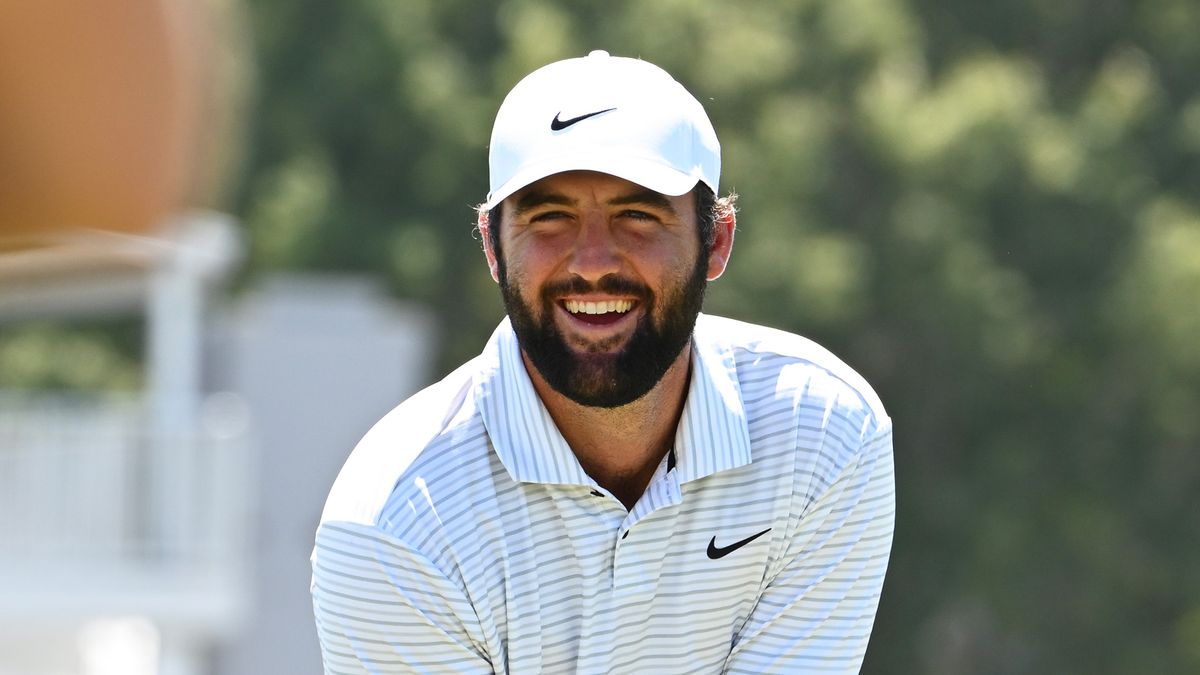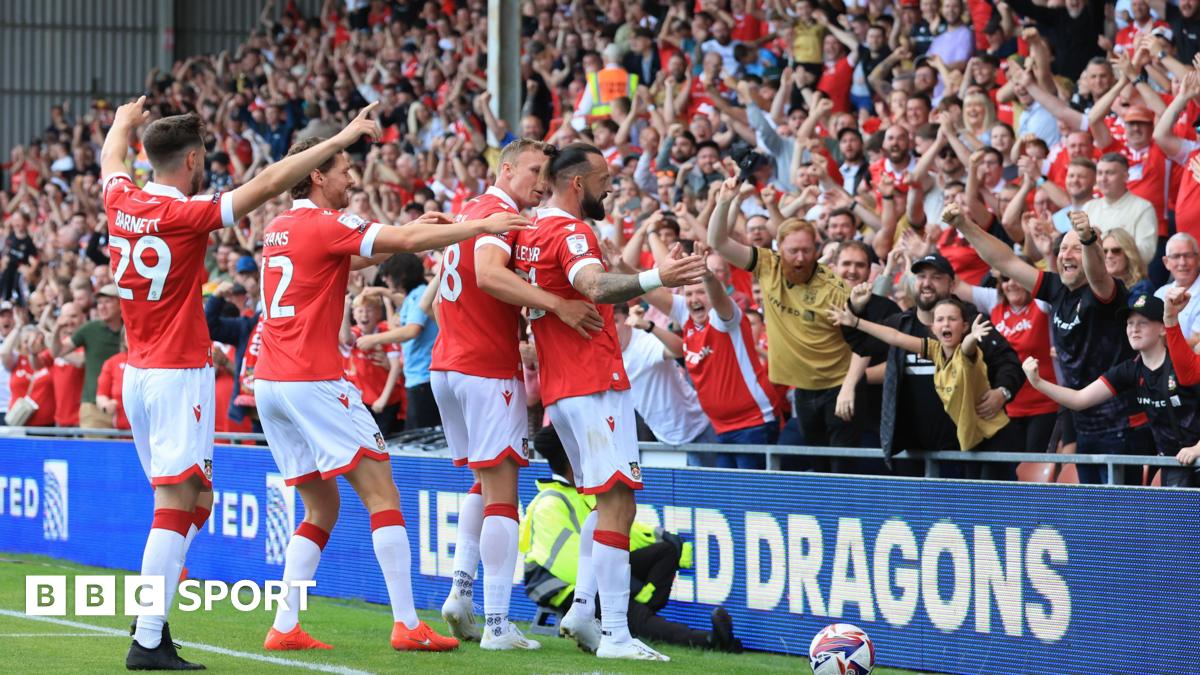Novak Djokovic knew he would win Olympic gold – he just didn’t know when

PARIS — What does it take to beat the best tennis player in the world?
On Sunday it took the greatest player of all time playing one of the greatest matches of his career. It took nearly three gruelling hours, and two spine-tingling tiebreaks, to win the one thing in tennis he had never won.
With a display for the ages that produced a 7-6(3), 7-6(2) win over Spain’s Carlos Alcaraz on Sunday afternoon at Roland Garros, Serbia’s Novak Djokovic captured the Olympic gold medal in the men’s singles, a prize he wanted more than any other and that had somehow eluded him during his unmatched, two-decade career.
When the moment of triumph finally arrived, with a blasted inside-in forehand to the postage stamp corner of the court, Djokovic, 37, crouched to his knees and immediately succumbed to the first set of tears. He made his way to the net to embrace Alcaraz, who would soon be sobbing too, from heartbreak rather than elation.
And then Djokovic embarked on the kind of impromptu outpouring of emotion that reminded the world that even after more than $100million (£128m) in prize money, 24 Grand Slam singles titles and a lock on the unofficial greatest-player-of-the-modern-era title, the Olympic gold medal was his white whale.
It was the thing that made his career feel incomplete. It was incomplete no more.
GO DEEPER
Game, Set, Match: Novak Djokovic beats Carlos Alcaraz for Olympic gold in Paris
Djokovic went to the center of the court and knelt in prayer, crossing his chest, his closed eyes looking skyward with his arms raised in the air. He crouched on the clay, crying more, his hands trembling.
He rose and headed for the stands, where his wife, Jelena, and his children, Tara and Stefan, waited for him a few rows up from the court. Tara grabbed him around his neck first, turning her father into a puddle, as Jelena and Stefan joined in the embrace.

Djokovic embraces his family after winning Olympic gold (Amin Mohammad Jamali/Getty Images)
Just two months ago, in this same city, he lay on an operating table as surgeons worked on the torn meniscus that had ended his French Open title defense ahead of his quarterfinal match. Now he was back at Roland Garros accomplishing the goal he said mattered most to him when his season began — a season that dragged on for months, filled mostly with frustration and injury, and definitely not filled with tournament wins.
All that ended in the bright, late afternoon sun on Court Philippe-Chatrier, where Djokovic has won the French Open three times. Thomas Bach, the president of the International Olympic Committee, placed the gold medal around his neck.
Djokovic kissed it over and over and held it up to his family and to the rest of the crowd, who chanted his name from the first moments of the match.
“The most special feeling,” Djokovic said later. He had thought carrying his country’s flag in the opening ceremony in 2012 was the greatest experience of his sporting life.
“This supersedes everything I can imagine,” he said.
A little more than a year ago, the Paris crowd had watched him win his then-record-breaking 23rd Grand Slam. On Sunday, they came to see him accomplish a more personal version of history.
Barely anyone gave him a significant chance to beat Alcaraz, who has won two Grand Slam titles in the past two months and, at 21, has achieved a level of awe-inducing primacy. He plays a version of tennis with which few, if any, are familiar. Djokovic found a way to deliver anyway.
Alcaraz gave Djokovic all he could handle, drawing from him a level he has only had to find against the all-time greats from his era – Roger Federer, Rafael Nadal; Stan Wawrinka and Andy Murray, too.

The final took nearly three hours under the afternoon sun in Paris (Matthew Stockman/Getty Images)
From the first balls Sunday afternoon, it was clear that Djokovic and Alcaraz had come to play, and nothing less than their best was going to beat the other one.
This was nothing like last month’s Wimbledon final when Djokovic, 39 days removed from knee surgery, came out flat and Alcaraz blew him off the court.

GO DEEPER
Tennis usually passes the torch. Carlos Alcaraz is running away with it
This was still the Alcaraz who blasts nearly every backhand and forehand he can while mixing in the world’s softest and most deceptive drop shot. But this time he met the Djokovic who chases down more balls than anyone and gets them back with the quality that switches him from defense to offense in the blink of an eye. This was a case of shared intensity raising things, less so than shared stakes. Alcaraz has many more Olympic Games in him; this is likely Djokovic’s last.
They guided laser serves onto the lines in crucial moments. They sprinted to drop-shot returns that traveled nearly parallel to the net. Djokovic moaned through the points he desperately needed. Alcaraz grunted on the forehands he lashed into the deepest corners, from 200 feet away sounding like he was yelling into your ear.
Alcaraz could sense in the first games that this was a different Djokovic than he had faced in a long while.
“I had in front of me a really hungry Novak,” he said later after the sadness of letting down the Spanish people had turned to pride and satisfaction for the effort he had made.
“I’m leaving this tournament with my head held high. I gave everything I could on the court today.”

Only tiny decisions — and Djokovic’s excellence — kept Alcaraz from Olympic gold (Matthew Stockman/Getty Images)
Both of them did. The first set lasted 93 minutes. The second one went 77.
“I don’t think I ever played that level for three hours,” he said, shaking his head with disbelief at what he had just been through. Only the occasional decision — going cross-court over down-the-line, playing a drop-shot or lob ahead of a pass — went awry. The ultimate difference was Djokovic, who found his best tennis in saving break points and converting opportunities; Alcaraz could only do the former.
It was still, almost, enough and it took nothing less than two of Djokovic’s signature, mistake-free tiebreaks to win the match. A single error in either and a different color medal may have found itself around his neck.
He clinched the first by chasing balls all over the clay and lunging for a forehand drop volley that not even the fastest player in the game bothered to chase.

GO DEEPER
How Novak Djokovic changed his game to become the GOAT
In the second one, the player with arguably the greatest backhand ever hit four of the most perfect forehands of his career when everything was on the line.
The first came on the very first point, in a full sprint across the baseline. He unleashed an outrageous curling cross-court short, on the kind of angle familiar to anyone who watched when he first began redrawing the dimensions of the court two years ago.
Four points later, he did it once more, again heading to his right and ripping cross-court, the kind of “hit-it-like-you-mean it” (his words from long ago) stroke that he crushed for winner down match point against Roger Federer in the U.S. Open semifinal in 2011.
Same shot. Same result.
There would be another lethal forehand on the next point, inside-in, to the postage stamp corner to set up an overhead. And then there was one last one, its destination obvious even before his arm started moving forward. Inside-in again, that corner again and, once more, Alcaraz was unable to get it back.

Djokovic was in supreme form (Carl de Souza/AFP via Getty Images)
“The intensity of the emotions I felt at that moment was something I never felt before,” Djokovic said.
The pressure had been building for 16 years, with the intensity of the expectations from his country to deliver them a gold medal growing ever higher. Alcaraz, too, said the pressure of the Olympics was so much different than anything he had endured, knowing that even the best players with the longest careers only get a handful of chances to win a gold medal.
Djokovic felt a first release when he beat Lorenzo Musetti in the semifinals. Surpassing his bronze medal from 2008, he collapsed on his back and celebrated like he had won the tournament.
After that win, he spoke in a way that suggested he had figured out how to convince himself that Alcaraz was beatable, despite the bludgeoning he had received three weeks before.
Alcaraz was the favorite. He’d won the last two Grand Slams. His Wimbledon title, coming off the French Open, is no less a transfer of power in tennis for this result.
But Djokovic believed he was a different player now, three more weeks removed from knee surgery. He was moving and striking the ball better, and that was before Sunday, when the thump-pop off his racket sounded like it hadn’t sounded all year, and maybe longer than that.

Djokovic holds his gold medal aloft (Quality Sport Images/Getty Images)
“I feel more confident about myself and my chances in the finals,” he had said.
In other words, somehow the world had completely changed in less than a month, at least in his mind, even if it really hadn’t. And this was the Olympics, he said. Best-of-three sets — “anybody’s game.”
There were doubts, of course. There always are.
“But the belief and the conviction I can make it is stronger than my doubt,” he said.
Earlier in the Games, he had told Bach not to count him out for Los Angeles in 2028, when he will be 41. He said it once more with the gold medal around his neck and the Serbian flag over his shoulders Sunday evening, before quickly shifting his thoughts back to the present, something few have ever done better on the tennis court.
Beyond the Gumby-like flexibility and agility and the lightning-quick reflexes, that is his true superpower.
“It was a long journey, many, many years of dreaming to be holding the gold medal,” he said.
“I knew it was going to happen, I just didn’t know when.”
(Top photos: Getty Images; design: Dan Goldfarb)
Related
Aryna Sabalenka Has ‘Many Things To Improve’ Ahead Of Australian…
Aryna Sabalenka won her second straight Australian Open title in 2024. (Photo by Julian Finney/Getty ... [+] Images)Getty Images Aryna Sabalenka said she has pl
Inside Andy Murray’s life after split from wife Kim and…
Andy Murray and Kim Sears. (Image: PA)Despite hanging up his racket, Andy Murray continues to make waves in the world of tennis. The 37-year-old sports icon, wh
The five players with the most aces on the ATP…
It’s been another exciting year of tennis on the ATP Tour and with 2025 around the corner it’s time to reflect on the year that was 2024. Carlos Alcaraz an











